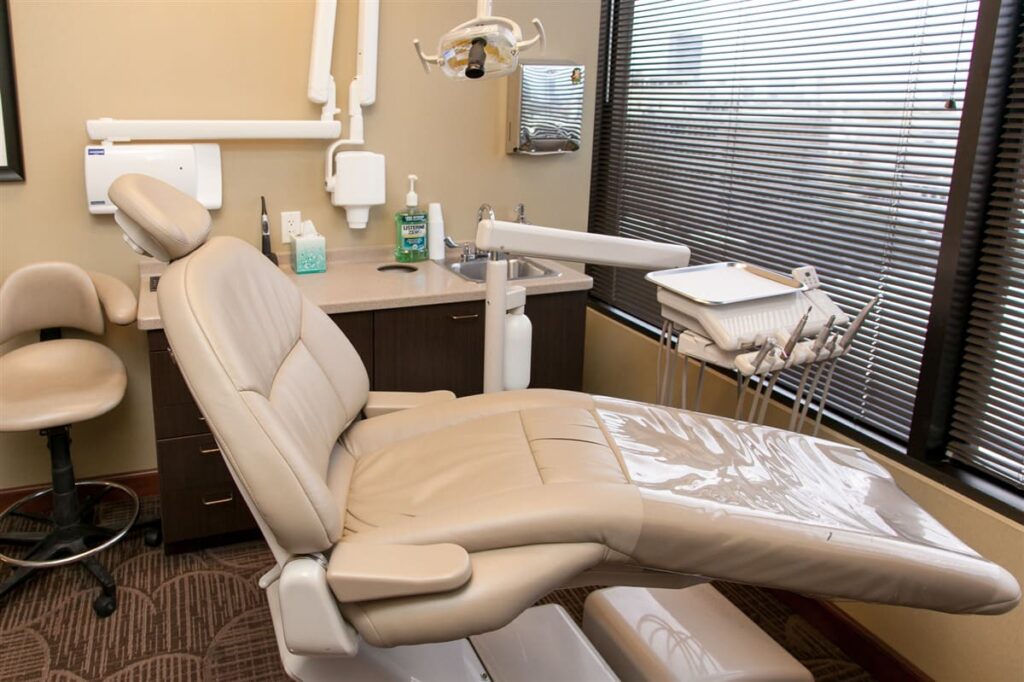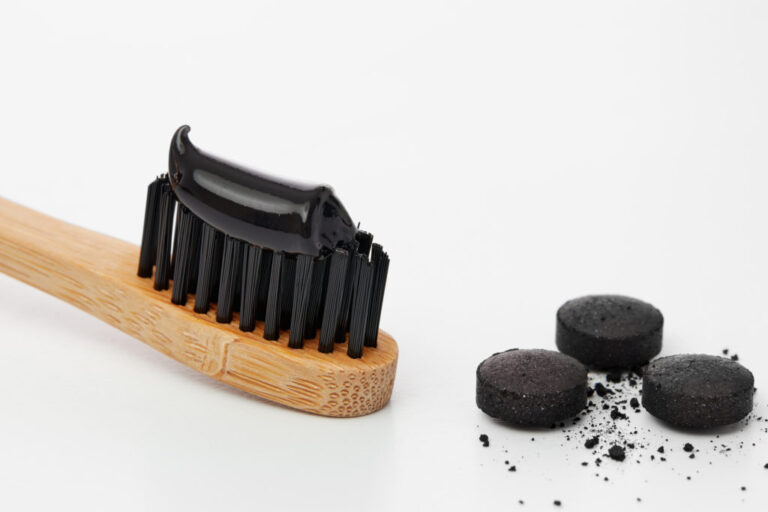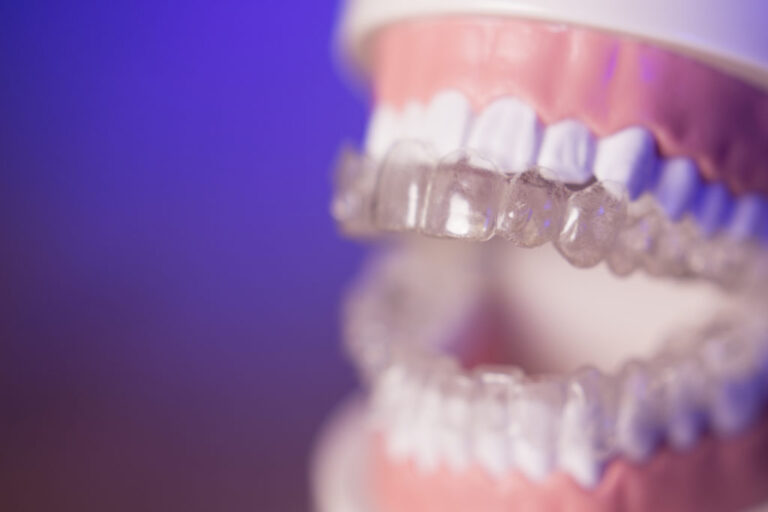A: If you don’t like the shape or the color of your smile, then you are a great candidate for dental veneers.
Have you been considering doing something to improve your smile due to discoloration, or the shape of your smile? Maybe you’re wanting to really knock some socks off at your 20-year high school reunion. If your smile is healthy for the most part but just cosmetically imperfect, then veneers might be the perfect solution for you.
Before you fully commit though, we want to make sure you’re well informed before you decide on something so important. You should know, that just because they can improve the appearance of your smile, it doesn’t mean you’re a good candidate.
Everyone’s dental situation is different, so it’s important to make sure this is an appropriate solution for your case. Let’s take a look at some basic facts first, then dive deeper.
What Are Veneers?
Veneers are thin, cosmetic facades that cover mildly misshapen teeth or stained teeth. They are made from various materials with the most popular being durable porcelain due to their lifelike appearance. It’s important to consider that this isn’t a permanent fix, but the process to place them does permanently alter your teeth. Your dentist must shave down a very thin surface layer of your teeth so they can be mounted flush.
So, in effect, once you decide to get veneers, you’re committed for life and they will need replacements about every 10-15 years. That number can change significantly depending on habits and how well you care for them.
They Are A Proven Cosmetic Tool
Created by a dentist way back in the late 1920s, these facades were used mainly for actors to enhance their smiles in their films. These, however, were strictly temporary and fit over the teeth without altering them.
In the late 30s, that dentist that created those temporary versions decided to craft a semi-permanent veneer from acrylic. These were designed to be worn all the time and of course, required shaving down the teeth to fit properly.
Over the years many advancements in veneer design and composition have led to some very impressive results. Veneers made from porcelain for example can be painted and given slight texture to realistically mimic natural teeth. Today, thousands of everyday people with minor cosmetic issues, turn to veneers to dramatically improve the appearance of their smiles.
Veneer Types
Porcelain and composite veneers are the most common types available in cosmetic dentistry. There are a few details you should know about both of these and some other lesser-known variants.
Porcelain
Porcelain veneers are the ultimate choice for the truest to life smile makeover. The dentist will need to do some prep on your teeth, get impressions, and then send it to the lab for the veneers to be created. Aside from their durability, porcelain veneers are extremely resistant to staining, leaving you with a whiter smile.
If you do grind your teeth at night porcelain is also the better option due to them being stronger. However, you need to use a night guard to protect your teeth when sleeping. However, it should be noted that the guard is only a temporary measure. You need to determine the root cause of your bruxism to correct it.
Composite
Composite veneers are created from a resin and usually can be created on-site in the same visit. Even though they aren’t as strong as porcelain, they cost less and still deliver great results. If you don’t have a lot of issues with your teeth, composite veneers are a great option.
No-Prep Veneers
Used primarily on the front teeth only, no-prep veneers, known by brands such as Lumineers or Durathin, are another option. Usually, there’s little to no prep work needed, no grinding or filing, as they are bonded to your teeth like composite veneers. They are bonded to your teeth like composite resin.
This makes no-prep veneers less expensive as well but it should be noted, they will feel a bit bulkier on your teeth. So, while they are less expensive, they aren’t as lifelike; some patients feel they look “fake.”
However, if you have teeth with a lot of issues, these might be your best alternative to traditional veneers. Just make sure you are extra diligent with your oral hygiene.
Trial Smile
Temporary veneers, often called trial smiles, are a temporary device your dentist may suggest before placing permanent veneers. Since the prep work for placing veneers is irreversible, this is a way to “try” veneers to be sure of your decision.
Trial smile veneers are usually made from a liquid resin on-site and are a bit thicker than actual veneers. They will feel a bit different than your natural teeth unlike veneers which feel closer to natural teeth, but it’s not a permanent commitment either.
Are Veneers For You?
If you have permanently stained teeth that have been unresponsive to whitening procedures, this treatment is a good option.
If you have a slight gap or slightly misshapen teeth, they can hide that and give the appearance of a perfect smile.
Essentially, any minor cosmetic issue you have with your teeth can be hidden using this semi-permanent treatment. You don’t even need to cover all of your teeth. You can simply get veneers for as little as one tooth that has a cosmetic issue if that’s your preference.
Perfect for people with:
- Internally stained teeth (below the enamel) that can’t be altered with whitening procedures
- Cosmetically damaged (not functionally damaged) teeth from trauma
- Overall aesthetic dissatisfaction with your smile
Who Should Opt-Out?
Unfortunately, while this treatment is widely adaptable to most patients, there are some conditions where you should opt-out of using veneers.
- Bruxism (grinding your teeth)
- Cavities
- Advanced Gum Issues
- Functional Alignment or Malocclusion issues
Patients who suffer from grinding their teeth or clenching in their sleep, also known as bruxism, are usually not good candidates. It doesn’t matter what material the ones you choose are made from; bruxism will drastically shorten their lifespan.
Also, if your teeth are in a state of decay or your oral health is in bad shape, this would only complicate things. Veneers do nothing to address decay, oral health, or cavities—they are purely cosmetic.
If you get veneers with unresolved cavities or gum disease, these conditions will worsen and create bigger problems. In case such as these, you should consider alternative treatments such as root canals, or a crown. For best results, consult with your dentist to determine which treatment is best for you.
Also, they cannot resolve crooked teeth or bite alignment issues. If you get veneers with these issues, it will only be masked. Furthermore, you could actually be leaving yourself vulnerable to deeper issues. Again, veneers merely mask minor imperfections that do not affect the functionality of your teeth or oral health.
Instead of opting for this cosmetic treatment when dealing with alignment and crooked teeth you might want to discuss orthodontic treatments with your dentist instead.
Wanting The Perfect Smile? Come Visit Us!
At CDG of Houston, we are here to give you the best possible option for the perfect smile you deserve. Contact us today to discuss your veneer options with one of our smile specialists.






